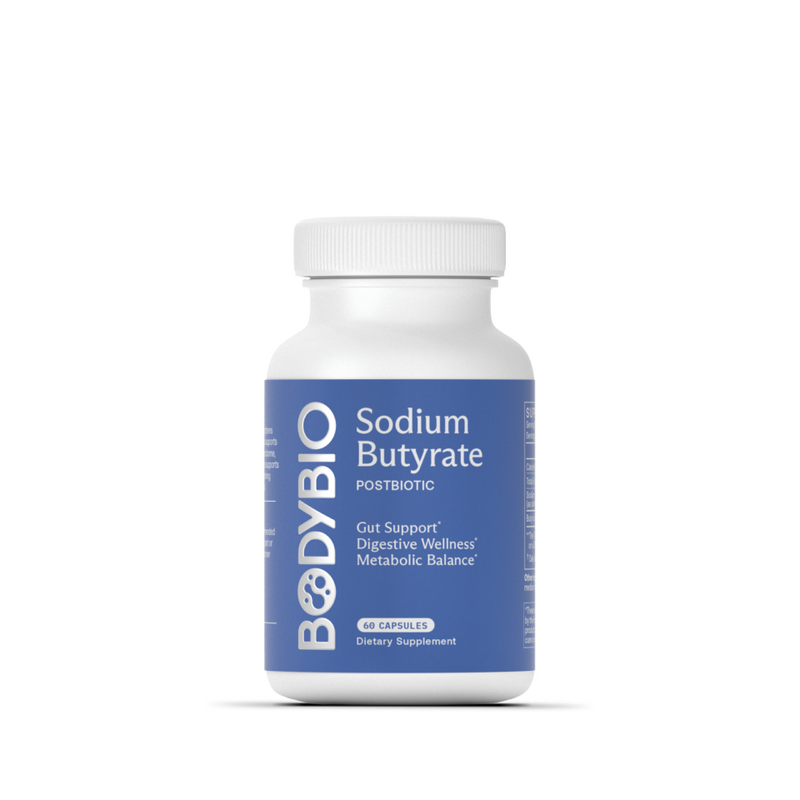4 Signs Your Restrictive Diet Is Doing More Harm Than Good
Key Points:
- When it comes to your diet, more restrictions — gluten-free, dairy-free, grain-free — isn’t always better.
- If you feel like you’re eating all the right foods, but you still feel tired, irritable, or even depressed, it might be time to re-examine your diet and find out whether you’re eating enough and getting the right balance of macronutrients.
- Brain rewiring can be extremely helpful in changing your eating habits, especially if you have fears around foods that may have contributed to chronic symptoms in the past.
Fad diets make a lot of promises. They’ll reboot your confidence, help you fit into your favorite pair of high-school jeans, and cure a chronic illness with smoothies and whole foods.
In a world obsessed with fitness goals and the best celebrity beach bodies, it’s no wonder we believe that altering our appearance is the key to fixing everything. But is it?
For sure, healthy and balanced eating styles are key to achieving optimal wellbeing. The foods you eat drastically impact your body — from physical strength to disease prevention and even eye health.
But like any good thing, diets can be taken too far. Instead of optimizing your health, overly restrictive diets make big promises with little results. The side effects far outweigh any positive change.
Long term exposure to restrictive dieting habits may cause:
- Feelings of hopelessness and failure
- Elevated cortisol and stress levels
- Slowed metabolism
- Digestive distress from irregular eating habits
- Brain fog
- Vitamin and mineral deficiencies
- Binge eating and disordered habits
Have you ever wondered if your diet promotes unhealthy habits? In this article, we’ll help you differentiate between healthy balanced eating and restrictive dieting.
When is a Diet Considered Restrictive?
Every body reacts differently to a specific diet. Some diets may be restrictive to your body, but totally fine for your best friend. When evaluating your eating habits, it’s important to pay attention to your own intuition — and the way you interact with food.
A restrictive diet is one that significantly reduces calories, shifts your lifestyle, or limits macronutrients and large food groups (like gluten, dairy, meats, etc.).
For some individuals, like those with celiac disease, removing gluten is necessary. But for others, removing gluten completely isn’t required for their health, and to do so would only impose unnecessary suffering. (Not that you should be eating donuts every day, but you get the idea.)
For athletes, your calorie intake might match the RDA for an average man or woman but fail to keep up with the needs of your activity levels — leaving you frustrated and constantly hungry.
Diets can also come with high emotional stakes. You want to feel accepted by your family at the dinner table — but you’re worried that gluten will destroy your gut. It’s common for people in these circumstances to become so invested that they miss out on life.
If you won’t go to a restaurant for fear of cheating on your diet or you’re skipping meals until you can find something diet-friendly, it’s time to re-evaluate your priorities.
A good rule of thumb: remember that all food is fuel for your body. It is better to have cheat calories than to have no calories at all. For example, if you’re on the road and your only option for a meal is fast food, choose the healthiest option you can, and move on. You’re doing your best with the resources available.
Restrictive Diet Examples
Trendy diets begin with good intentions. Keto can be an amazing alternative for people with epilepsy. Low-carb diets can help reverse the symptoms of diabetes. But when these diets are marketed to the public without considering body types or medical history, they can become problematic.
Low Carb Diets
Diets like Keto or Atkins force your body into a state of ketosis—where you begin to burn protein for energy instead of carbohydrates. Since this puts your body into a survival state, this method can be damaging for people already dealing with high stress. (Which, these days, is more of us than not.)
Healthy carbohydrates are required for hormone balance, optimized sleep, and are even known to decrease the risk of cancer. When you restrict fruits, veggies, starches, and all grains due to carbohydrate content, you also eliminate the benefits of eating green and risk decreased microbiota variety.
Liquid Fasts and Elemental Diets
Programs that rely on shakes, smoothies, or juice as the primary source of nutrients are famous for their ability to reset the digestive system and detox the body. Limiting so many nutrients may not feel dangerous to you, but it can set off alarms and increase stress in your body. A person struggling with an eating disorder or overcoming chronic illness should proceed with caution.
Whole 30 Eating Plans
The coworker who sits across from you at lunchtime swears by her Whole 30 approach. It’s true that whole foods and elimination diets can do a lot for those trying to pinpoint their allergies or heal from chronic illness. However, this restrictive diet eliminates a lot of food groups and isn’t meant for long-term use. Check your diet at the door — it’s okay to let cheese back in your life.
Signs Your Restrictive Diet Could Be Harming You
The signs and symptoms of restrictive dieting are more obvious than you think. Clever marketing and peer pressure has turned us away from our own intuition and body cues. But if you really listen, you’ll discover quickly what your body needs.
You’re a Late Night Binge Eater
If you commonly hide out in the pantry eating Oreos at midnight, you probably think you’re a total failure. Good news: the problem isn’t you — it’s the diet. Binging is your body’s way of alerting you to a deeper problem. If you’re not getting enough calories during the day, your survival mechanisms turn on at night and encourage you to find a quick solution (most likely, carbs).
You Don’t Enjoy Food Anymore
Food is one of the many simple pleasures of life. The art of cooking is one enjoyed across the nations—and rooted deeply in every world culture. Eating increases our dopamine levels—meaning we are physiologically rewarded when we take our first bites. For many, cooking and experimenting with flavors can relieve stress and help you feel more connected to family and friends.
If you dread the idea of putting together one more diet-friendly meal, it’s time to rethink your priorities and imagine a world where you enjoy eating again.
You’re Tired Constantly
It’s easy to explain away your tiredness with hot-button topics like inflammation, hormone imbalances, and gut issues. But what if your mid-day exhaustion is just your body’s way of telling you to eat more? Before turning to the next fad diet for your answers, try increasing your breakfast and lunch calories.
You Can’t Stop Thinking About Food
The Teddy Grahams you just handed your child look delicious. You always want to know what your favorite coworker brought for lunch and you live vicariously through her burger and fries. If your mind is constantly consumed with thoughts of food, your brain is sending you a signal that it’s time to increase calories or food varieties.
How to Address a Restrictive Diet
If you’re stuck in a restrictive dieting cycle, take a deep breath. It’s okay. Recognizing the problem is half the battle. Take some time to evaluate the real reason behind your diet. Are you chasing someone’s approval? Are you concerned that a certain food group will make your symptoms worse?
Take some time to address your fears, through journaling or speaking with a mental health practitioner. Then, consider ways you can still reach your goals while making your diet less restrictive. This will help you become more at peace with your life — and with your body.
Find the Right Diet for You
If you struggle with diabetes, celiac, or a chronic health condition, diet is a significant part of your life and can only be altered so much. Still, symptoms of restrictive dieting are serious and can leave you feeling hopeless and out of control.
When choosing a diet, consider these things:
- Focus on adding nutrients instead of eliminating them
- Get an optimal balance of major nutrients, like fiber, fat, carbs, and protein
- Work to address your emotions in healthy ways without using food as a reward
- Retrain your brain to react positively when exposed to trigger foods
- Find flexible dieting methods that help you achieve your goals without excessive restriction
Implement the Right Diet
When you’re ready to implement the right diet, begin by journaling all the real motivations behind your new eating habits. It’s okay to be honest with yourself. Do you feel uncomfortable in your own skin? Are you concerned your eating habits are affecting your health?
Find an accountability partner to remind you to be true to yourself and to your goals. Most of all, take this opportunity to listen to your body and fulfill its needs. There’s nothing more satisfying than fully knowing yourself and working with your body instead of against it.
Tackle Your Diet Goals with BodyBio
If you identify with the symptoms of restrictive eating, it’s time to get your life — and your nutrients — back. Supplements are a great way to increase your energy while learning how to balance your plate with a healthy mix of protein, fats, and carbs.
If you’ve been living in a state of survival for too long, our professionally formulated supplements like Butyrate and BodyBio PC can help you restore gut and brain health.
Enriquez, E., Duncan, G. E., & Schur, E. A. (2013). Age at dieting onset, body mass index, and dieting practices. A twin study. Appetite, 71, 301–306. https://doi.org/10.1016/j.appet.2013.09.001
Zhang, Y., Zhou, S., Zhou, Y., Yu, L., Zhang, L., & Wang, Y. (2018). Altered gut microbiome composition in children with refractory epilepsy after ketogenic diet. Epilepsy research, 145, 163–168. https://doi.org/10.1016/j.eplepsyres.2018.06.015
Murphy, E. A., Velazquez, K. T., & Herbert, K. M. (2015). Influence of high-fat diet on gut microbiota: a driving force for chronic disease risk. Current opinion in clinical nutrition and metabolic care, 18(5), 515–520. https://doi.org/10.1097/MCO.0000000000000209
Volkow, N. D., Wang, G. J., & Baler, R. D. (2011). Reward, dopamine and the control of food intake: implications for obesity. Trends in cognitive sciences, 15(1), 37–46. https://doi.org/10.1016/j.tics.2010.11.001
St-Onge, M. P., Mikic, A., & Pietrolungo, C. E. (2016). Effects of Diet on Sleep Quality. Advances in nutrition (Bethesda, Md.), 7(5), 938–949. https://doi.org/10.3945/an.116.012336
Tomiyama, A. J., Mann, T., Vinas, D., Hunger, J. M., Dejager, J., & Taylor, S. E. (2010). Low calorie dieting increases cortisol. Psychosomatic medicine, 72(4), 357–364. https://doi.org/10.1097/PSY.0b013e3181d9523c

